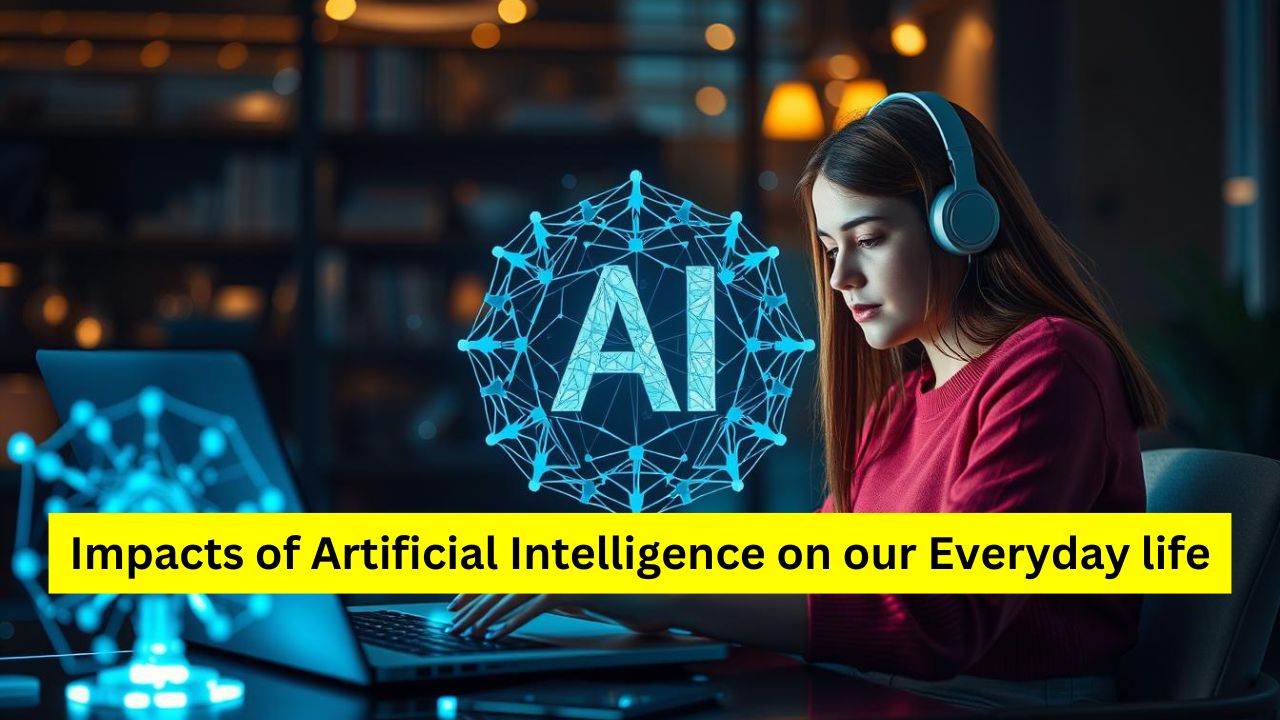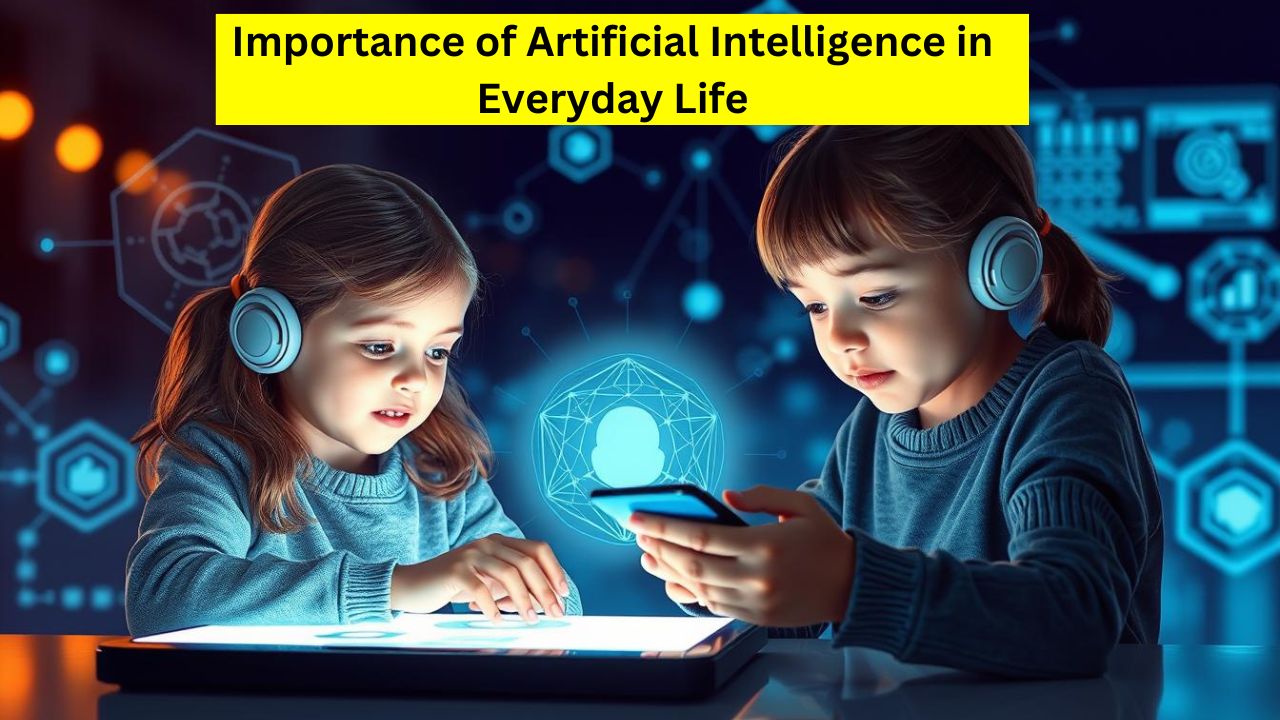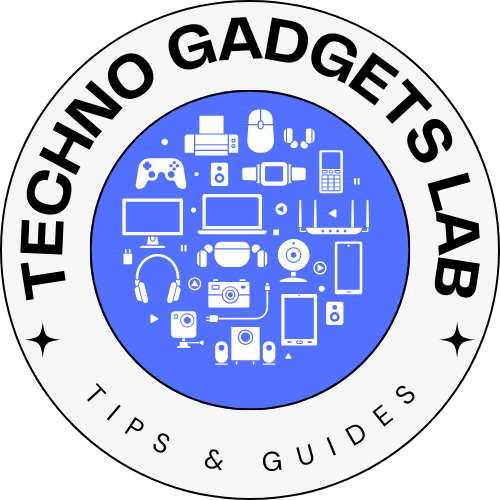AI’s Impact on Daily Life in 2024: What to Expect
Impacts of Artificial Intelligence on our everyday life 2024 : As I think about the fast growth of artificial intelligence (AI), I feel both excitement and worry. This technology will change our lives a lot in 2024.
Just ten years ago, ideas like smart homes and AI assistants seemed like sci-fi. But now, we’re on the edge of a big change. It will change how we live, work, and interact with others.
Thinking about AI’s future, I wonder how it will change our daily lives. Will we be more efficient and connected? Or will the fast changes make us feel lost?
This article will look into how AI will affect our daily lives in 2024. Let’s explore the good and the challenges together.
The Rise of Intelligent Assistants
In the coming years, we’ll see more intelligent assistants in our lives. These AI friends will understand and talk back to us better. They’ll make our interactions smoother and more personal, fitting our unique needs and likes.
Natural Language Processing Advancements
NLP technology is growing fast, changing how we talk to our AI helpers. These systems will get better at understanding and answering us, making our chats more natural and effective.
Personalized AI Companions
As these AI friends get smarter, they’ll know us better. They’ll learn our likes and habits, giving us tailored advice and help. This will make our daily tasks easier and more efficient.
“The future of AI-powered assistants lies in their ability to truly understand and cater to our individual needs, seamlessly blending into our daily lives and becoming indispensable partners in navigating the complexities of modern living.”
Automation in the Workplace
Artificial intelligence (AI) is changing the workplace in big ways. Robotic process automation (RPA) is leading this change. It makes repetitive tasks easier and faster.
Robotic Process Automation
RPA uses AI to automate tasks like data entry and invoice processing. This frees up employees to do more creative work. It boosts innovation and productivity in companies.
Augmented Analytics and Decision Support
AI is also changing how we make decisions. Augmented analytics and decision support systems analyze data and offer insights. They help streamline work and improve decision-making. This leads to better efficiency and outcomes.
| Benefit | Impact |
|---|---|
| Robotic Process Automation (RPA) | Automates repetitive, time-consuming tasks, freeing up employees to focus on strategic and creative work. |
| Augmented Analytics | Analyzes data, identifies patterns, and provides insights to help streamline workflows and improve decision-making. |
The use of robotic process automation and augmented analytics shows AI’s power. As these technologies grow, we’ll see even more changes. This will lead to a more efficient and innovative future.
Impacts of Artificial Intelligence on our everyday life 2024
As we near 2024, AI’s effects on our daily lives will grow stronger. It will change how we live, work, and use technology. This includes smart homes and better healthcare.
AI will make intelligent personal assistants common in 2024. These assistants will help us with tasks like scheduling and finance. They use natural language to understand us better.
AI will also change the workplace. It will make tasks more efficient and help us work smarter. Employees will focus on creative tasks, not just routine ones. AI will also give us insights for better decisions.
| Impact of AI | Key Benefits |
|---|---|
| Intelligent Personal Assistants | Increased productivity, personalized recommendations, and seamless task management |
| Workplace Automation | Streamlined processes, enhanced efficiency, and data-driven decision-making |
| Smart Home Integration | Improved energy efficiency, personalized comfort, and enhanced security |
| Autonomous Vehicles | Improved traffic flow, reduced accidents, and increased accessibility for those unable to drive |
AI will also change our homes in 2024. It will make them smarter and more efficient. Our homes will use energy better and keep us comfortable.
AI will also improve how we travel. Self-driving cars will make roads safer and easier to use. They will help everyone, not just drivers.
But we must think about AI’s ethics. We need to make sure AI respects our privacy and is fair. This is important for a good future with AI.
In 2024, AI will deeply change our lives. It will make our homes, work, and travel better. By facing AI’s challenges, we can make our lives better and more connected.

AI-Powered Smart Homes
In 2024, our homes will change thanks to artificial intelligence (AI) and the Internet of Things (IoT). AI-powered smart homes will make our lives easier and more comfortable. They will automate tasks and save energy, giving us more comfort and convenience.
Internet of Things Integration
Smart home devices, like voice assistants and connected appliances, will connect more through the IoT. This connection lets them work together, making our homes more responsive to our needs.
- Adaptive lighting and temperature controls will keep our homes just right, based on what we like and where we are.
- Smart security systems will use facial recognition and sensors to keep us safe. They’ll also let us check in from anywhere.
- Kitchen appliances will team up to plan and cook meals, saving us time and effort.
Energy Efficiency Optimization
AI will make our homes use less energy, helping the planet and saving us money. Smart homes will learn how we use energy and adjust to use less.
| Feature | Benefit |
|---|---|
| Predictive Maintenance | AI will spot and fix problems before they cost us a lot, keeping our systems running well and saving energy. |
| Automated Scheduling | Smart devices will use energy wisely, doing big tasks when it’s cheapest and easiest on the grid. |
AI and IoT will make our homes better and help the planet. They’ll save energy and reduce waste, making our lives greener and more efficient.
Revolutionizing Healthcare
Artificial intelligence (AI) is changing healthcare in big ways. It’s making a huge difference in AI-assisted diagnostics.
AI systems can look through lots of medical data. This includes patient histories, test results, and images. They help doctors make better and quicker diagnoses. This makes treatment plans more personal and effective for each patient.
AI-Assisted Diagnostics
AI in healthcare diagnostics has brought many benefits:
- It makes disease detection and risk assessment more accurate.
- It speeds up getting test results and diagnoses.
- It helps doctors work less, so they can focus on patients.
- It suggests treatments that fit each patient’s needs.
For instance, AI can spot tiny details in medical scans. This helps find diseases like cancer, heart disease, and brain disorders sooner and more accurately.
| AI-Assisted Diagnostic Techniques | Potential Benefits |
|---|---|
| Natural Language Processing (NLP) for analyzing patient records | Identify patterns and risk factors, streamline clinical decision-making |
| Computer Vision for interpreting medical images | Detect anomalies and diseases with higher accuracy, reduce manual workload |
| Predictive Analytics for personalized treatment recommendations | Tailor therapies based on individual patient data, improve outcomes |
As AI in healthcare keeps getting better, we’ll see even more changes. Soon, healthcare will be more accurate, efficient, and tailored to each person’s needs.
Autonomous Vehicles and Transportation
The future of transportation is changing fast, thanks to self-driving cars and AI. By 2024, these changes will affect our daily lives more and more.
Self-driving cars, powered by AI, will change how we travel. They will be safer and smarter, handling roads better. AI helps them avoid accidents and make roads safer.
These cars will also make traveling easier and faster. You can relax or work while driving. AI helps them find the best routes, cutting down on traffic and travel time.
But it’s not just about personal travel. Self-driving trucks and delivery cars will also change how goods move. They will make supply chains more efficient, cut down on pollution, and save time.
| Key Benefits of Autonomous Vehicles | Potential Challenges |
|---|---|
|
|
Looking ahead to 2024, self-driving cars and AI will change how we travel. There are challenges, but the benefits are huge. They promise a future of easier, greener, and more accessible travel.
Ethical Considerations and Governance
Artificial intelligence (AI) is becoming a big part of our lives. It’s important to think about the ethics and rules around it. This includes privacy, data protection, and making sure AI is used right.
Privacy and Data Protection
AI has made us worry about our privacy and data safety. We need to make sure our personal info is protected. Governments and tech companies must work together to create strong privacy laws.
Algorithmic Bias Mitigation
AI can sometimes be unfair or biased. Algorithmic bias comes from the data or the people who make the systems. It’s key to make sure AI is fair and doesn’t make things worse.
To fix this, experts are working on fairness-aware machine learning. They want to find and fix biases in AI. Also, being open and accountable in AI development helps build trust.
“Ethical AI is not just a buzzword, but a critical issue as we rely more on smart machines. Solving these complex problems needs teamwork from policymakers, tech experts, and the public.”
Augmented and Virtual Reality Experiences
As we near 2024, AI and immersive tech like augmented reality (AR) and virtual reality (VR) are changing our lives. These AI-powered advancements will make entertainment, gaming, education, and daily tasks more engaging. They will create digital worlds that feel real and interactive.
NLP and machine learning are getting better, making virtual assistants in AR and VR smarter. These helpers will understand us better, respond to our voice, and give us the right info. This will make our time in these digital spaces even better.
AI will also make AR and VR more personal. It will learn what we like and what we need, adjusting the experience just for us. This means every virtual journey will be unique and tailored to our tastes.
Imagine virtual shopping that feels like real life or educational games that make learning fun. The mix of AI, AR, and VR will change how we see and interact with the digital world. As we dive into these new techs, our lives in 2024 and later will be greatly affected.
| Feature | Augmented Reality | Virtual Reality |
|---|---|---|
| Immersion Level | Moderate | High |
| Interaction with Physical World | Blends digital and physical | Completely digital |
| Accessibility | Widely available on smartphones | Requires specialized hardware |
| Applications | Gaming, shopping, education, navigation | Gaming, entertainment, training, therapy |
The line between the real and digital worlds is getting smaller. With AI in AR and VR, we’re entering a new era. This era will bring us immersive, smart, and personal experiences that will deeply change our lives in 2024 and beyond.
AI and Creativity
In 2024, Artificial Intelligence (AI) is changing more than just how we work and analyze data. It’s also transforming the world of arts and design. Generative AI systems are leading this change, making new things possible.
Generative AI in Arts and Design

Generative AI has opened up new ways for artists and designers to express themselves. These tools can create original art, designs, and even music. This is starting a new era of creativity.
AI is changing the way we make art, from paintings to fashion. Artists can work with AI to make unique pieces. Designers can also use AI in arts and design to make things that fit exactly what people want.
But, using generative AI in art and design comes with its own set of challenges. We need to think about ethics, ownership, and what’s real. Yet, AI’s ability to boost human creativity is clear. The future of arts and design in 2024 looks very exciting and personal.
Conclusion
In 2024, artificial intelligence will change our lives even more. It will make our homes smarter and healthcare better. AI will also make driving safer and our creative work more exciting.
AI will make us more productive and efficient. It will change how we work and live. Our homes will be more comfortable and use less energy thanks to AI.
We need to think about the ethics of AI. We must protect our privacy and data. By doing this, AI can make our lives better without harming us.
FAQ
Q: What advancements in natural language processing will we see in intelligent assistants?
A: Intelligent assistants will get better at understanding and responding to us. They will make our interactions smoother and more personal. This is thanks to natural language processing (NLP).
Q: How will AI-powered automation transform the workplace?
A: AI will take over routine tasks, letting people focus on creative work. It will also give insights to improve decision-making. This is through tools like robotic process automation (RPA) and augmented analytics.
Q: What are the key impacts of AI on our everyday life in 2024?
A: AI will change many parts of our lives. It will make our homes smarter, improve healthcare, and change how we travel. It will also make entertainment more fun and personal.
Q: How will AI-powered smart home technologies improve our lives?
A: Smart homes with AI will make our lives easier. They will control our homes, save energy, and make us more comfortable. This is thanks to the Internet of Things (IoT).
Q: How will AI transform the healthcare industry?
A: AI will change healthcare a lot. It will help doctors diagnose faster and more accurately. It will also help create treatment plans that fit each person’s needs.
Q: What are the key ethical considerations and governance frameworks surrounding the development and implementation of AI?
A: As AI becomes more common, we need to think about its ethics. We must protect our privacy and make sure AI is fair. This includes avoiding bias and using AI responsibly.
Q: How will AI enhance our experiences with augmented and virtual reality?
A: AI will make AR and VR better. It will create more realistic and fun digital worlds. This will change how we enjoy games, learn, and even do everyday tasks.
Q: How will AI impact the creative industries?
A: AI will change the creative world a lot. It can create original art, designs, and music. This opens up new ways for artists and designers to express themselves.
For Tech Videos Subscribe this Channel
Read More
How to use ChatGPT to learn English easily



